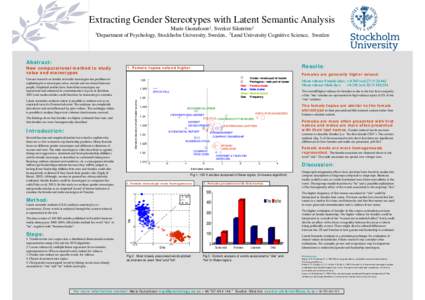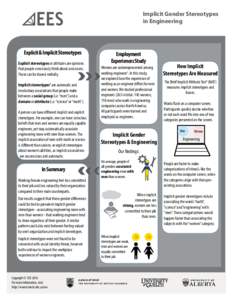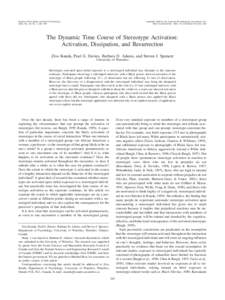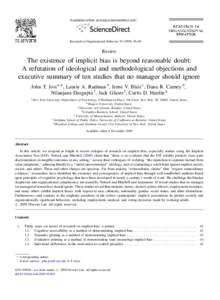<--- Back to Details
| First Page | Document Content | |
|---|---|---|
 Date: 2009-08-17 09:44:40Sexism Ethology Discrimination Role Congruity Theory Stereotype Gender Grammatical gender Latent semantic analysis Implicit stereotypes Social psychology Behavior Science |
Add to Reading List |
 nytt märket med ordbild
nytt märket med ordbild



